Showing 251–260 of 262 results
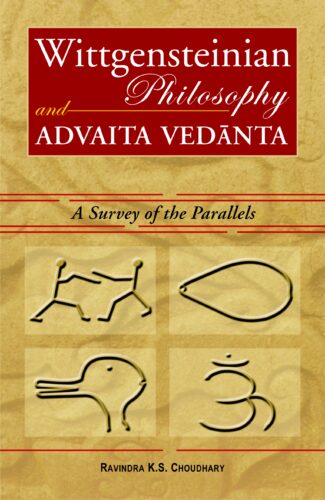
The philosophy of Wittgenstein and the Advaita Vedanta philosophy are two philosophical traditions far apart in time and cultural space yet they possess striking similarities. This volume painstakingly researches Wittgenstein’s works and the basic texts of Vedanta, the Upanishads, the Brahmasutra and the Bhagavad-Gita, delving deep into their similarities.
The philosophy of Wittgenstein and the Advaita Vedanta philosophy are two philosophical traditions far apart in time and cultural space yet they possess striking similarities. This painstaking research carried out with a rare thoroughness by an erudite scholar, Ravindra K. S. Choudhary, shows that there are illumi-nating parallels between them even while recognizing their legitimate differences. The work argues that though Advaita Vedanta did not exert a direct influence over Wittgenstein, the philosopher owes much to Schopenhauer who was a great admirer of the Upanishads. Examining a variety of Wittgenstein’s works earlier as well as later and the basic texts of Vedanta, the Upanishads, the Brahmasutra and the Bhagavad-Gita, along with Shankara’s interpretations of them, it delves into their similarities vis a vis the question of reality, the realm of value and some central issues of ethics and religion. It observes that, for instance, Wittgenstein’s notion of the mystical (das Mystische) is similar to the Advaitic view of Brahman. For both, the matters of value have a higher or transcendental level as distinct from the world of facts. Wittgenstein’s idea of a good or happy life is very close to the Vedantic ideals of jivanmukti as well. The work goes on to show that the Vedantic parallels of Wittgenstein’s philosophy persists in distinctive ways from the Tractatus to his last writings. The volume reveals a fresh approach in the field of comparative philosophy. The volume will benefit all those concerned with the discipline of philosophy, Indian or Western.
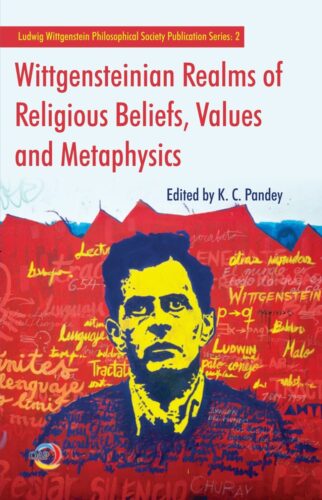
All that cannot be expressed in language, for early Wittgenstein, belong to the realm of Unsayable or Showable. Such a realm consists of religious beliefs, ethical values, aesthetics, metaphysics, solipsism, love, death among other aspects of life which language is incapable of depicting successfully. Later Wittgenstein did not insist on the inexpressibility of these realms as each of them has their own distinct form of life. In this background this anthology is an attempt to explore various facets of these aspects of Wittgensteinian philosophy through various elucidations and interpretations. It is classified into three sections, viz. “Religious Beliefs, Wittgensteinian Fideism, Religious Pluralism, and Cultural Debates”, “Absolute Value, Ethics, Aesthetics, Architecture” and “Subjectivism, Solipsism, Metaphysics, and Hermeneutics”. It aims at bringing out the current development in the field as found in the debates and discussions on Wittgensteinian philosophy in the contemporary philosophical world.
All that cannot be expressed in language, for early Wittgenstein, belong to the realm of Unsayable or Showable. Such a realm consists of religious beliefs, ethical values, aesthetics, metaphysics, solipsism, love, death among other aspects of life which language is incapable of depicting successfully. Later Wittgenstein did not insist on the inexpressibility of these realms as each of them has their own distinct form of life. In this background this anthology is an attempt to explore various facets of these aspects of Wittgensteinian philosophy through various elucidations and interpretations. It is classified into three sections, viz. “Religious Beliefs, Wittgensteinian Fideism, Religious Pluralism, and Cultural Debates”, “Absolute Value, Ethics, Aesthetics, Architecture” and “Subjectivism, Solipsism, Metaphysics, and Hermeneutics”. It aims at bringing out the current development in the field as found in the debates and discussions on Wittgensteinian philosophy in the contemporary philosophical world.

The book is a biography of the eminent saint-philosopher of modern India, Guru Narayana. It deals with the meaning and essence of guruhood and gives rational explanations for many baffling aspects of life. It reveals the significance of his Advaita Vedanta method for introducing a new science of wisdom dialectics. It also describes the physical and psychological conditions of South India and explores the spirituality of India.
Millions of people have been deeply affected by the life and teachings of the Guru Narayana, who is the central figure of this book. This is a biography, not only of the Guru Narayana, but of Guruhood itself. Religions and philosophies have their sources in such men, and the aim here is to clarify this fact, without being sentimental or sensational. In doing so, many hitherto baffling enigmas of Indian life are given a rational explanation for the first time. Nataraja Guru, the disciple-successor of the Narayana Guru, uses the contemplative discipline which was characteristic of the Guru Narayana, and brings the Advaita Vedanta method into the forefront of global thought as understood today, introducing a new science of Wisdom-Dialectics. Nataraja Gurus scheme of correlation between science and mysticism amounts to an epochal advance in philosophy. This book represents the voice of the Guru. The Word of the Guru provides a quantity of original material for study, including fully annotated and carefully translated writings of Guru Narayana. It describes the physical and psychological conditions of South India with great brilliance. The spirituality of India is set forth here in its clearest terms, unambiguous and shorn of all limiting frontiers, suitable for readers in all parts of the world.
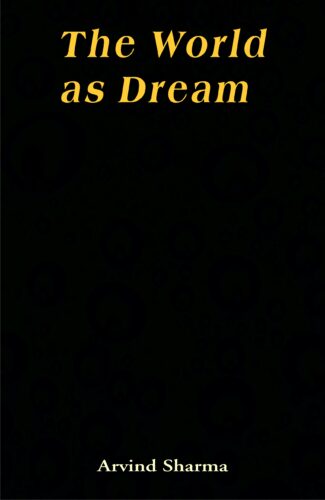
Book exploring the names nuances of the theme of World as Dream in all its richness to establish the plausibility of the philosophers position that though the world appears to be real might turn out to be false like a dream.
The ontological status of the world has been a subject of much philosophical speculation despite the fact that the world is an existential given. According to some philosophers, such existential givenness could turn out to be comparable to the earth’s apparent flatness, with the actual truth turning out to be the very opposite of what it seems. Philosophers often cite the experience of a dream to establish the plausibility of their position that the world might appear to be real while it is being experienced, and yet turn out to be ultimately false like a dream. This motif plays a particularly important role in schools of philosophy in the East and the West which are idealistic in their orientation.
This book explores the nuances of the theme of the world as dream in all its richness.
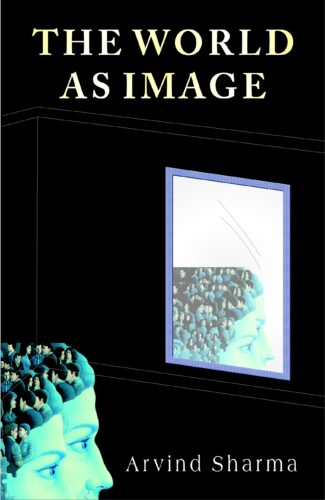
Book exploring one of Advaita Vedantas central illustrative themes with which it tries to render its doctrines credible in the face of our experience of plurality and variety in life.
There is something profoundly counter-intuitive about Advaita Vedanta. Nothing is more obvious to both the philosophical as well as the non-philosophical observer than the fact that multiplicity constitutes the basic datum of our experience. Variety is not only the spice of life it is a cardinal fact of life. The doctrines of Advaita Vedanta shock us by flying in the face of this fact and by denying any ultimacy to that plurality and variety which we experience so intimately. This naturally raises the question: how does Adavita Vedanta render its doctrines credible in the face their apparent implausibility. This book is an exploration of one of its central illustrative devices with which it tries to accomplish this daunting task.

The essays study different dimensions of the modern autonomous individual existence such as the pre-selfconscious self and the minds insane aspects. They discuss artistic, especially aesthetic, experience, and ethics and moral philosophy.
How are we to understand the many religious traditions of humankind? Should we view our own religion as true and all others false? Should we regard all religions as the same? Should we view the religions as a cacophony? Professor Bryant explores these questions in this challenging book. He seeks to find a path through contemporary religious conflict that will lead us to greater understanding and appreciation of the plurality of religious traditions. Woven on the Loom of Time: Many Faith and One Divine Purpose argues that the religious traditions share a common purpose: to fit humanity for the Ultimate. But that shared purpose is unfolded differently in each religious tradition. Moreover, the great religious traditions unfold on the loom of time where they clothe and reshape our humanity to make us fit for the Ultimate. Professor Bryant unfolds his argument in five chapters. After an introductory chapter, he lays the foundation for an understanding of dialogical humanity that sees the religious traditions as a dialogue with transcendence. He then explores the multiform religious traditions Hindu, Buddhist, Christian, Muslim, Confucian and Sikh as nurseries for the formation of humanity. In the fifth chapter, he unfolds a grammar of the spirit that sees religion as shaping and clothing humanity on the loom of time. In the Epilogue, Bryant restates his thesis in a poem concerning divine-human destiny.

It is an authentic edition and consistent documentation of the complete philosophical journey of Shri Yashdeva Shalya. It provides a penetrating philosophical reflection on the self-conscious act of self-conscious being engaged in the cultivation of culture and civilization through different modes of creativity.
Yashdeva Shalya Samagra is an authentic edition and consistent documentation of the complete philosophical journey of Shri Yashdeva Shalya. It is Yashdeva Shalya who can be considered as one of the most original thinkers of twentieth-century India, after the advent of Sri Aurobindo. The philosophical contributions of Yashdeva Shalya have taken the shape of a complete system of philosophy during his active engagement with the East and West history of ideas for the last five decades. It is widely known as the philosophy of Chidadvaitavada which truly depicts the metaphysics of human creativity. For Yashdeva Shalya, all modes of human creativity vis-à-vis philosophy, religion, history, culture, literature, ethics, aesthetics and scientific temper are nothing but an unending quest of self-conscious being in the direction of getting rid of its self-alienation. Thus, four volumes of Yashdeva Shalya Samagra, i. e. Jnana aur Sat, Cit aur Mulya, Samaj aur Sanskriti and Darshnik Itihas-Dristi provide a penetrating philosophical reflection on the self-conscious act of self-conscious being engaged in the cultivation of culture and civilization through different modes of creativity. The collection of these four volumes will be certainly a valuable asset for the library of any institution and for sincere knowledge seekers.
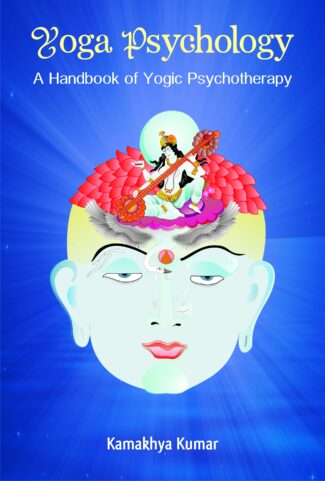
The sound practice of yoga enables one to have a disease-free body and keen intellect. This book details the impact of various yoga practices on psychology and specifies that consciousness has a wider conation in yoga in developing one’s personality traits and leveraging them further to keep him/her happy and experience a blissful life.
Yoga psychology is both a positive and a normative science. It not only analyses human personality and its growth, but sets normative ideals and prescribes techniques to achieve such objectives, as well. Thus, expansion of consciousness and making oneself the master of his/her mind are the broad objectives of yoga psychology. The topological aspect of mind as described by Freud in terms of conscious, subconscious and unconscious levels was well detailed in the yogic literature, thousands of years ago. The sound practice of yoga enables one to have a disease-free body and keen intellect.
The book, thus, details the impact of various yoga practices on psychology and specifies that consciousness has a wider conation in yoga. Yoga presents vivid and sound meditation procedures for the attainment of psychic consciousness through the awakening of kundalini. Homeostasis or balance is the central principle in yoga psychology, and it holds that any sort of imbalance in the system physical, psychological or pranic creates disorders and the solution lies in rebalancing it. Here comes the role of yogic psychotherapies such as prarthana, mantra sadhana, spiritual couselling, pranayama, yajna, sankirtana, svadhyaya and vrata anushthana.
This volume enunciates that yoga psychology is an applied science, and thus has remedies for many individual and social problems. It deals at large with the application and benefits of yogic practices in developing ones personality traits and leveraging them further to keep him/her happy and experience a blissful life.
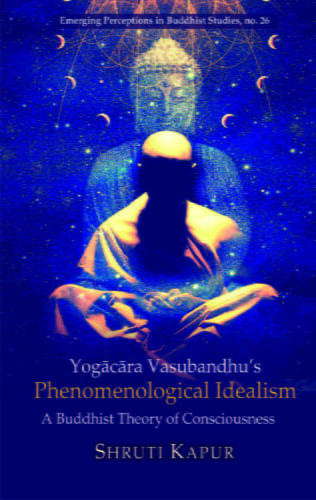
This book is a comparative study of the phenomenology of Yogacara Vasubandhu and that of the German philosopher Edmund Husserl having the focus on the understanding of the deeply inner nature of consciousness or mind. It asserts that the Yogacara philosophy is much richer and comprehensive than the Western phenomenology, particularly the Husserlian phenomenology.
This book is a comparative study of the phenomenology of Yogacara Vasubandhu and that of the German philosopher Edmund Husserl having the focus on the understanding of the deeply inner nature of consciousness or mind. It articulates that the Yogacara philosophy is much richer and comprehensive than the Western phenomenology, particularly the Husserlian phenomenology.
Later Vasubandhu’s philosophical orientation was idealist in Indian sense or a phenomenologist in Husserlian sense. His Mahayana Yogacara idealism is based on Asanga’s seminal text Sandhinirmocanasutra and his own Vijnaptimatratasiddhi (Vimsatika and Trimsika together) along with his exploration of the intrinsic theory of consciousness or mind. For one to have a clear-cut understanding of Vasubandhu, the book follows the Husserlian phenomenological approach as a philosophical methodology and also used select terminology wherever required.
This book is expected to be highly useful for students, researchers and teachers in the area of Indian/Buddhist philosophy.
This book is a comparative study of the phenomenology of Yogacara Vasubandhu and that of the German philosopher Edmund Husserl having the focus on the understanding of the deeply inner nature of consciousness or mind. It asserts that the Yogacara philosophy is much richer and comprehensive than the Western phenomenology, particularly the Husserlian phenomenology.

This book is a journey in search of these mysterious figures who nestle in the shadow of the Goddess. A journey which unfolds in the frontier zones of Indian tradition, constantly hanging in the balance between Tantric rituals, sacrifices and subtle knowledge.
The Yoginis are awful expressions of the divine in feminine form of which evidence is found in Tantric contexts in both the Hindu and Vajrayana Buddhist traditions. Endowed with a multitude of aspects and functions, they may take the form of women or witches devoted to obscure rituals, of primordial forces linked with illness, poisoning and possession, of subtle beings present in supporting one for meditation like yantra and mantra, or of genuine gods who frighten and fascinate. Gathering in circles in the depths of the forest or in cremation grounds, the Yoginis engender powers and secret knowledge, granted to those who evoke them through practices which may be extreme. Ultimately the Yoginis keep company with death, offering to the initiates who surrender to their embrace the prospect of liberation beyond the glittering world of illusion.
This book is a journey in search of these mysterious figures who nestle in the shadow of the Goddess. A journey which unfolds in the frontier zones of Indian tradition, constantly hanging in the balance between Tantric rituals, sacrifices and subtle knowledge a perilous quest which is the heritage of all traditional searches.
This volume written in elegant, fluent and colourful prose should entice the interest of all those associated with the Tantric practices, especially that of Saptamatrikas, ten Mahavidyas, Dakini and Nitya.
| There are no products |